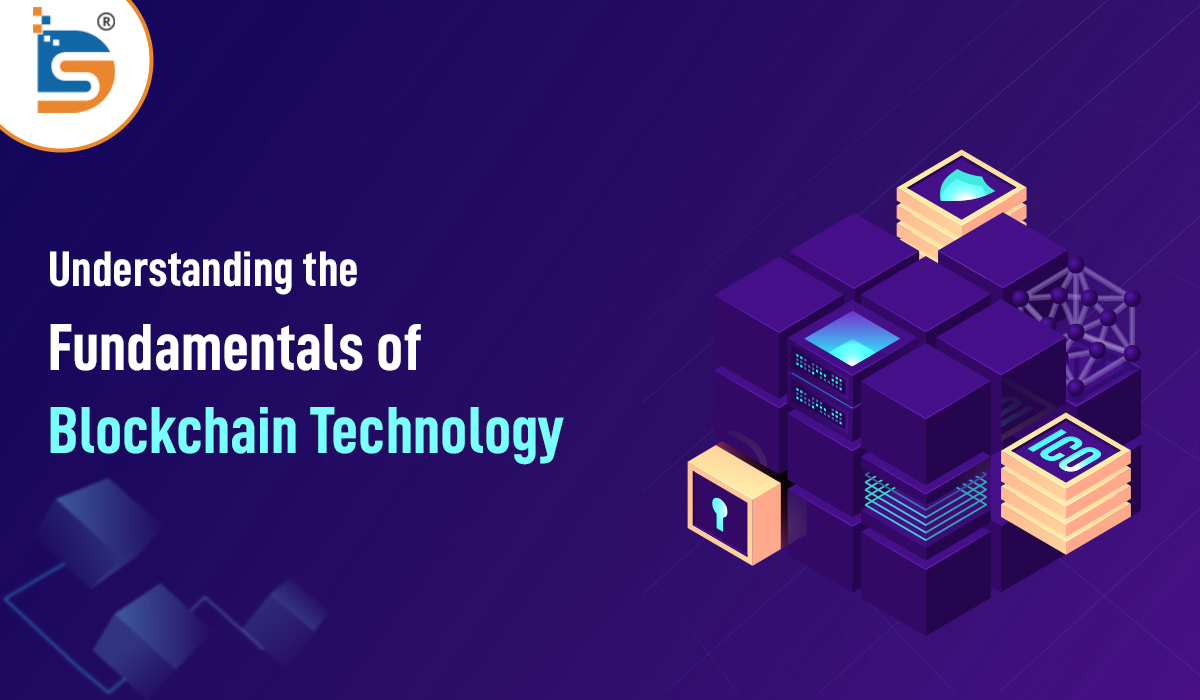Why Blockchain is the Ultimate Solution for Data Security

Strong 8k brings an ultra-HD IPTV experience to your living room and your pocket.
In the digital era, data security is a persistent challenge for individuals, businesses, and governments. Cyberattacks, breaches, and manipulations are increasing with the exponential growth of data on centralized servers. While traditional security solutions like firewalls and anti-virus software are reactive, blockchain offers a fundamentally different approach. Blockchain technology, originally built to support cryptocurrency transactions, has now evolved as the ultimate solution for data security due to its decentralisation, immutability, and transparency.
✍️ Data privacy is critical in the digital era. Our article on blockchain privacy solutions explains how distributed ledgers are enhancing confidentiality across sectors.
At its core, blockchain is a distributed ledger that stores data in blocks linked chronologically. Each block contains a timestamp and a cryptographic hash of the previous block, making it practically impossible to alter records retroactively. This characteristic makes blockchain far more secure than conventional centralized databases, where an attacker only needs to compromise one point to gain unauthorized access or tamper with data.
Decentralisation Eliminates Single Points of Failure
One of the primary reasons blockchain is superior for data security is decentralisation. Unlike centralized systems, blockchain networks consist of multiple nodes that store identical copies of data. If an attacker tries to alter a record on one node, the rest of the network rejects it due to inconsistencies in the hash values. In centralized systems, data is often stored on a single server or a cluster managed by one authority. This means if hackers breach this central point, they gain full control. Blockchain development services are leveraging decentralisation to design systems that eliminate single points of failure entirely.
Consider data breaches that have exposed millions of personal records in recent years. These breaches occurred primarily because centralized databases remain vulnerable to human error, insider threats, or external attacks. Blockchain mitigates these risks by distributing data across all nodes, ensuring no single entity has overriding control. As a result, even if one node is compromised, the integrity of data remains intact across the network.
Immutability Ensures Data Integrity
Immutability is another crucial pillar supporting blockchain’s superiority in data security. Once data is recorded on the blockchain, it cannot be altered or deleted without network consensus. Any change in a block would require altering all subsequent blocks and gaining approval from the majority of nodes in the network, which is computationally impractical. This ensures data integrity remains preserved over time.
Businesses often struggle with data manipulation and fraudulent activities due to the editable nature of traditional databases. Records can be backdated, modified, or erased, leading to disputes and compliance issues. Blockchain development services implement immutable ledgers to guarantee that records remain tamper-proof, providing a permanent audit trail for all activities within an organisation.
Enhanced Transparency Without Sacrificing Privacy
Transparency is often misunderstood as public exposure of data. Blockchain offers transparency by allowing all participants in a network to verify and validate transactions without viewing private details. This is achieved using cryptographic techniques that protect user identities while proving the authenticity of transactions.
For example, blockchain can secure healthcare records by enabling patients, hospitals, and insurance providers to access verified data without revealing personal health information publicly. Blockchain development services are designing such privacy-focused solutions for industries where data integrity and confidentiality are equally crucial.
Advanced Cryptography Reinforces Security
Blockchain uses advanced cryptography to secure data. Each transaction is encrypted and linked to the previous one using complex algorithms. Hash functions ensure that even a small change in data produces a completely different hash output, alerting the network to tampering attempts. Public and private key encryption further protects user identities and ensures only authorised parties can initiate or approve transactions.
Traditional security mechanisms often rely on password protection, which remains vulnerable to phishing attacks or poor user practices. Blockchain-based systems eliminate this risk through private keys, which are cryptographically generated and almost impossible to crack with current computational capabilities. Many best blockchain development companies incorporate multi-signature wallets and layered cryptographic approaches to enhance security for enterprise-grade applications.
Protection Against DDoS Attacks
Distributed Denial of Service (DDoS) attacks are common threats faced by businesses today. In centralized infrastructures, DDoS attacks target a single server with excessive traffic, causing it to crash and disrupting services. Blockchain’s decentralised structure distributes data and processes across thousands of nodes, making it nearly impossible for attackers to take down the entire network.
Moreover, blockchain protocols use consensus mechanisms such as Proof of Work or Proof of Stake to validate transactions, making it expensive and inefficient for attackers to flood the network with malicious transactions. Blockchain development services integrate such protocols to protect enterprise applications from downtime and operational disruptions.
Real-World Applications Demonstrate Blockchain Security
Blockchain’s security potential is not just theoretical. Enterprises globally are adopting blockchain to secure critical data assets. For instance, financial institutions are using blockchain to eliminate reconciliation frauds, enabling real-time cross-border settlements with unalterable records. The supply chain industry is implementing blockchain to track goods from origin to delivery with verified timestamps at every checkpoint, preventing counterfeiting and enhancing product authenticity.
Healthcare systems are adopting blockchain to store patient records securely, ensuring doctors can access accurate medical histories without risking data leaks. Government departments are exploring blockchain for land registry and voting systems to eliminate fraudulent practices and secure public trust in digital governance initiatives.
Why Businesses Are Partnering with Blockchain Development Services
Blockchain development services play a pivotal role in designing and implementing security-focused solutions tailored to business needs. From conceptualising architecture to deploying smart contracts and integrating decentralised identity management, these services ensure security is built into the foundation of applications rather than added later as a patch.
Partnering with the best blockchain development company provides businesses access to experts proficient in smart contract security audits, cryptographic key management, and token economy design for secure digital ecosystems. These companies adopt rigorous development practices, continuous testing, and compliance frameworks to ensure that blockchain solutions not only improve security but also align with regulatory requirements.
Smart Contracts: Automation with Security
Smart contracts are self-executing programs on the blockchain that automate transactions based on predefined conditions. They eliminate the need for intermediaries, reducing costs and removing risks associated with manual processing errors or manipulations. However, smart contracts themselves must be coded securely to avoid vulnerabilities that can be exploited by attackers.
Blockchain development services ensure smart contract security through code audits, formal verification, and scenario testing to identify and eliminate loopholes before deployment. Once deployed on the blockchain, these contracts remain tamper-proof, enabling businesses to automate critical processes securely.
Data Privacy and User Control
Unlike centralized platforms where data is stored and controlled by the service provider, blockchain enables users to maintain ownership of their data. Individuals can grant or revoke access using private keys without relying on intermediaries. This is becoming increasingly important as users demand greater control over their personal information in an age of mass data harvesting and privacy scandals.
Decentralised identity management systems built on blockchain give users a unique identifier that cannot be forged or stolen easily. It enables seamless, secure authentication across platforms without sharing passwords or sensitive information repeatedly. The best blockchain development company will prioritise such user-centric solutions, recognising privacy as an integral aspect of security.
Cost-Efficiency of Blockchain Security
Traditional cybersecurity involves constant monitoring, licensing fees, and third-party verification costs, which add up significantly for businesses. Blockchain solutions, once deployed, require minimal maintenance as their decentralised nature ensures automatic fault tolerance and recovery. Nodes continue to operate even if some fail, and no dedicated team is required to maintain a central server. This reduces operational costs while enhancing overall security.
Furthermore, blockchain reduces the need for costly third-party verification processes. For example, in cross-border payments, multiple intermediaries verify transactions, increasing both time and cost. Blockchain validates transactions instantly through network consensus, maintaining security while enhancing process efficiency.
Challenges to Address
While blockchain offers unparalleled security advantages, challenges remain in scalability, energy consumption (particularly in Proof of Work-based networks), and regulatory acceptance. However, advancements such as Proof of Stake, Layer 2 solutions, and private permissioned blockchains are mitigating these limitations, enabling businesses to deploy blockchain securely at scale.
It is essential to collaborate with blockchain development services that remain updated with these advancements and design solutions tailored to the unique operational requirements of each enterprise.
Conclusion
In conclusion, blockchain stands out as the ultimate solution for data security due to its decentralisation, immutability, advanced cryptography, and user empowerment. It shifts the paradigm from reactive security to proactive prevention of data tampering and unauthorized access. Industries globally are partnering with the best blockchain development company to build solutions that integrate security within the very fabric of their digital infrastructure.
As cyber threats evolve, businesses that adopt blockchain-based security solutions will be better positioned to safeguard their data assets, maintain customer trust, and achieve operational excellence in an increasingly digital world. The question is no longer whether blockchain can secure your data – it is how soon you can integrate it into your systems to stay ahead in this competitive landscape.
Note: IndiBlogHub features both user-submitted and editorial content. We do not verify third-party contributions. Read our Disclaimer and Privacy Policyfor details.







